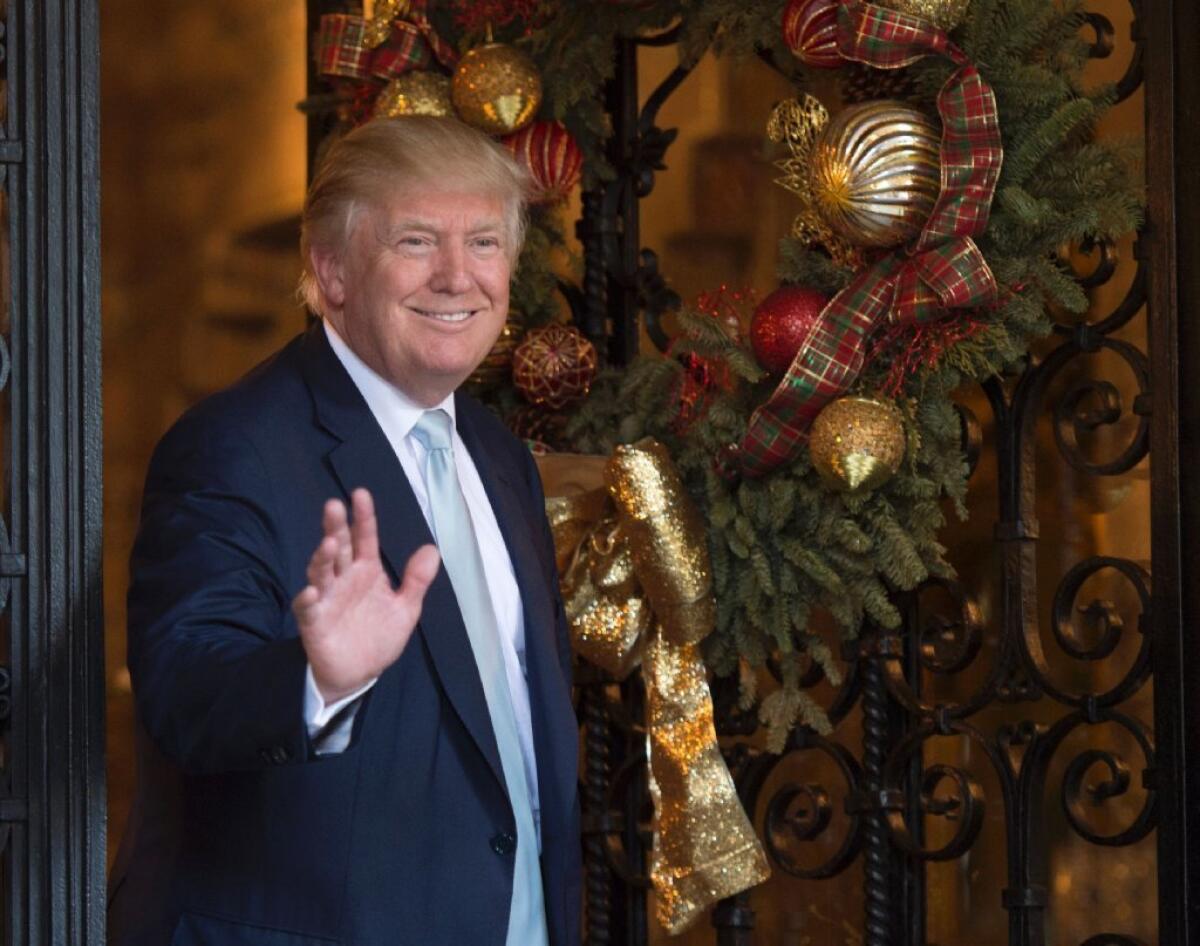Opinion: Did a Trump tweet save the Office of Congressional Ethics? Not really

- Share via
In one of the quickest reversals in recent political history, House Republicans on Tuesday scuttled a plan to change the rules in a way that would have weakened the independent Office of Congressional Ethics. The office, created in 2008 after a series of scandals involving House members, serves as a kind of grand jury for the House Ethics Committee and issues reports that are made public.
The new rules proposed by Rep. Robert W. Goodlatte (R-Va.) would have reduced the autonomy of the watchdog office in several ways: by preventing the release of the results of its investigations without permission of the Ethics Committee; by stopping it from following up on anonymous complaints; and by prohibiting it from referring possible criminal wrongdoing to prosecutors without Ethics Committee approval. The office also would have gotten a new name: the Office of Congressional Complaint Review.
The last-minute shelving of the new rules, which had been approved by Republicans at a meeting Monday, was a major victory for aggressive ethics enforcement. As a 2010 Los Angeles Times editorial argued, the OCE “has made it harder for the Ethics Committee to engage in backdoor cover-ups and deal-making.”
But who should get credit for the rescue of the office? Could it be President-elect Donald Trump?
It would be easy for readers of news coverage of the turnabout to get that impression. Several noted that Trump had criticized the proposed rules change in a tweet posted Tuesday morning.
Here’s the sub-headline of the story in BuzzFeed: “Amid criticism from Donald Trump, Democrats and ethics experts over their move to severely limit the Office of Congressional Ethics’ powers on day one, House Republicans unanimously voted to kill the amendment Tuesday.”
USA Today quoted Rep. Matt Gaetz (R-Fla.) who opposed the rules change, saying: “Never underestimate the power of a Donald Trump tweet.”
Not so fast.
First of all, Trump’s two-part tweet was hardly a ringing endorsement of the OCE’s work or current independence.
What he actually wrote was this: “With all that Congress has to work on, do they really have to make the weakening of the Independent Ethics Watchdog, as unfair as it may be, their number one act and priority. Focus on tax reform, healthcare and so many other things of far greater importance! #DTS”
Except for the hashtag (an abbreviation for “Drain the Swamp”), there was little in the tweet to encourage supporters of OCE. Trump seemed to be criticizing the priority congressional Republicans were attaching to gutting the office, not their ultimate objective of defanging an “unfair” watchdog.
Also, Trump wasn’t the only – or the most important – factor in the backlash. As the Los Angeles Times story noted, “Good-government and watchdog groups warned Republicans to switch course.”
Furthermore, a torrent of news articles Monday evening and Tuesday morning brought the Republicans’ attack on the office to the attention of the House members’ constituents.
As Brian Beutler of the New Republic complained on Twitter: “Amazingly, the OCE outcome is the direct result of quality journalism, yet journalists are falling over themselves to hand credit to Trump.”
(It’s also worth noting that this isn’t the first attempt to weaken the OCE – it has been under attack before, from both Republicans and Democrats. And both good-government groups and newspaper editorialists opposed previous attempts to rein in the office.)
No doubt Trump’s tweet had some effect on House Republicans, who aren’t eager to antagonize the Republican who will be sworn in as president on Jan. 20. But this was not an example of “I alone can fix it.”
Follow the Opinion section on Twitter @latimesopinion and Facebook
More to Read
A cure for the common opinion
Get thought-provoking perspectives with our weekly newsletter.
You may occasionally receive promotional content from the Los Angeles Times.











